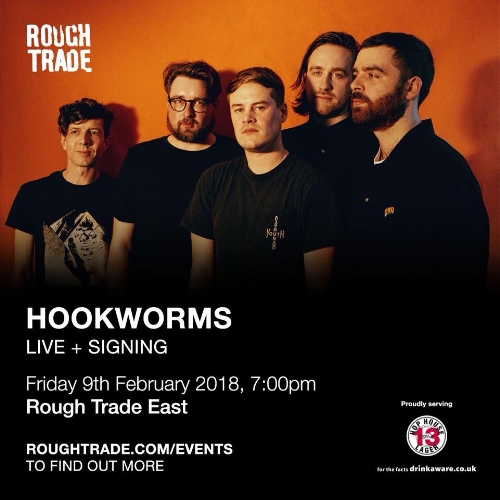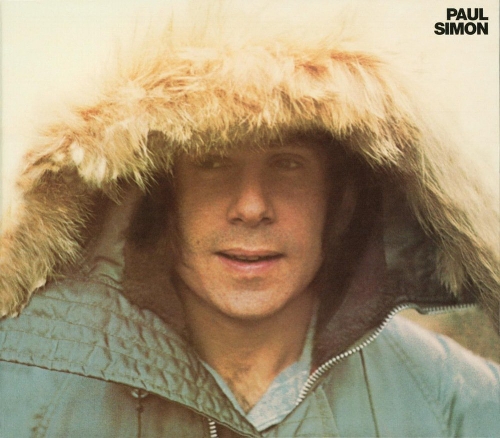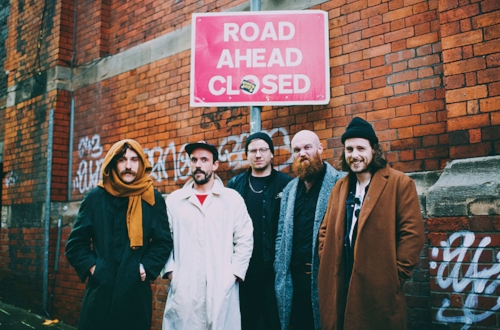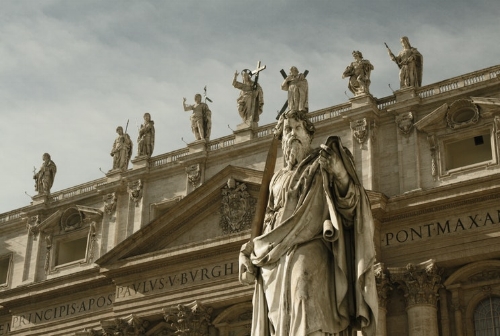FEATURE:
I Heard a Bird Twitter in Berkeley Square
ALL PHOTOS: Unsplash
Are Some Artists Neglecting the Most Important Social Media Tool of All?
_________
I raised an interesting point on Facebook…
a few days back. It might not have been a calm discussion: more, a coruscating rant against musicians who do not have a Twitter account. It seems, in this day and age, every musician would understand the importance of the platform! Other people made some counter-arguments. They, for one reason or the other, do not use the service. Perhaps they are not getting true value from the site. It is only legitimate and worthwhile if you can get your music out to the people. If you float a profile out there; leave it a while and nobody comes your way – the temptation to leave the site is fair enough. Twitter is a site that appeals to those who want to get their music out to fellow artists, labels and radio stations as quickly as possible. I feel Facebook is more useful for personal interaction – it is less effective regarding music promotion and spreading material. I use Facebook for my music work but it is merely there for my contacts. Little of my work is shared and I know there is a limited scope. I can post a review or article and, unless someone shares it; it is hard knowing how far it goes. It takes longer to share work on Facebook – a few seconds but still a little heftier – and I prefer the speed and brevity of Twitter. I can put an article out there and tag in all the artists I want. It is out there on the page and it looks good. I have more contacts on Twitter and it is a lot easier to connect with others.
You cannot force people to follow you but it is a lot easier to follow others – few ask for permission and it is simpler building relationships. Facebook is better for messaging and bonding in a deeper way – although you might not personally know a lot of the people you are messaging. Twitter, to me, is a business tool: music is as much a business as it is a career/passion. If you want to get your music to the world and build a decent fanbase – surely one cannot ignore the powers of Twitter?! This is my assumption on the matter – I know others disagree and there is a debate. Twitter is a communication call and one that, if used sagely and effectively, can do wonders. The reason I was so perturbed the other day was because of an interview I conducted. I took the band on – I get so many requests and feel no reason to turn many down – and, without thinking, ploughed on with the piece. I knew they had a Facebook page but could not see a Twitter page listed in the bio. I assumed the P.R. company missed it out – they are not always helpful when it comes to logical aspects – and I had every faith I would find one! I looked and checked and, after confirming it with the agency; they revealed the truth: the band do not want to be on Twitter!
I found this somewhat baffling. Even if you are starting out in the industry; why would you ignore Twitter? I can understand a lack of Instagram visibility. I do not have an account and neither do I need one – nobody needs to see my face or chart my goings on beyond what I post on my blog. I do not record music so, for the most part, I use Twitter and Facebook. As the blog becomes more wide-ranging, I will change this. I will bring in a YouTube account and, perhaps, SoundCloud. There are bands who do not want to be exposed and too visible. Some, cool and edgy, see Twitter as another step towards commercialism and corporatism. If they want to do that then they know the risks. Some find greater value in Facebook and word-of-mouth. I cannot understand that assumption. Facebook is not nearly as powerful and accessible as Twitter; it is harder to connect with music professionals and more difficult to recruit a massive amount of followers. All of the opportunities and breaks I have had the past couple of years came from Twitter. I wrote a piece on BBC Radio 6 Music and shared it with the station – tagging in several D.J.s and producers. The fact I did that meant it got ‘likes’; it was shared and commented on by those D.J.s – followers of those people commented and, before long, the article was extended from various tentacles. It was a big moment and one that could not have happened without Twitter! From that one post; I got to meet Matt Everitt – a music news reporter for the station – and given invaluable advice.
I have been on the site for years but did not need to be: I could have posted that article five years ago and would have the same result. I have been contacted by musicians and gained so many opportunities from my time on Twitter. I have a lot of followers and, every time I review/interview an artist; new people see my work and join the ‘flock’. It means I have artists I can contact for work and more who see my work. For musicians; even at the very start – where they have no followers – they can follow similar artist and labels. Before long, they will get people into the tent and their foundations will expand. It took me a long time to get where I am but I have a long way to go. I feel a lot of the cynicism stems around patience and not getting far ahead right away. The band I reviewed had no excuse for ignoring Twitter. Their music is missing out on a huge market: included in there are radio stations, big artists and who knows what! The fact my interview was published and, surprisingly, ignored and fell down a hole was inevitable. If the band is unable to see it on Twitter then it will not get shared and promoted. There is no risk to having a Twitter account. One does not need to pay and it is easy to operate. The fact you can easily connect with so many others freely is a luxury Facebook does not have. You can message people but getting in front of them is not nearly as easy as Twitter.
I can see how some might overlook Twitter. If you are a big artist then you might not need the constant work and effort needed to keep the profile relevant and active. The site is best for those new and upcoming musicians who want find fans and ensure their work gets seen around the world. Facebook is becoming more advert-driven and profit-seeking than ever before. In order to get my posts beyond the walls of my profile; I have to ‘boost’ my profile – pay Facebook to share it with random people. That might generate a few more views but, in reality, it is not as controlled and logical as Twitter – I have no idea who the piece is going out to and whether they are actually reading it. Throw in the fact I have to PAY to do that means I am reluctant to do it for some of the more minor pieces. Twitter is a much more cooperative and reciprocal vessel (compared with Facebook). It is said one-fifth of those you follow will follow you back: that gets larger as you become more popular. People do not like being bothered on Facebook. I try and add various people as ‘friends’ – music-related and to further my work – and they either reject the request or ignore stuff I post.
I try to limit my posts to a few each day. If you do more then people will not be interested and start to get annoyed – this spam approach to social media leads to exodus and irritation. Twitter works the same, I’ll grant you – the fact the average tweet is shorter than a Facebook page makes it less irksome. Different people, depending on the style of music they play and what section of the industry they work, will have their preferences. My argument is not that you should ban Facebook and only use Twitter: I am stating you should use BOTH. I can see other people’s arguments for preferring Facebook – more personal and they prefer its interface. Even if you find a preference in one site; how does that translate into ignorance of another?! If you want to get as far as possible in music then you need to use both and ensure you get the most out of them. That might mean a low-level Twitter coverage and occasional tweets. There is no real rational reason for ignoring Twitter. It might not be as beneficial and profitable as you’d hoped – that does not mean it is worthless. There are great sites that musicians should consult if they want to make the most of Twitter. Here is one...and here is another. Take a look here, too.
The best article I have discovered is this one from Readwrite. The writer talks about the way Twitter connects fans with artists
“The biggest and most obvious advantage of using Twitter for artists is the ability it offers them to engage directly with fans. This is something Amanda Palmer has become quite well-known for among those that follow her. The Boston-based musician and member of The Dresden Dolls is described as a “Twitter ninja” on Twitter’s official guide for musicians and is generally recognized as one of more active and engaging musicians using the service.
Not only does Palmer chats back and forth with fans but she eagerly seeks their input on things like songwriting and t-shirt design”.
It went on to look at the ‘value’ of Twitter and get the best from it:
“Everybody says social media is important, but does putting in the effort actually pay off? It depends on what one’s definition of “value” is and, of course, on who the artist is and what they’re approach to social networking happens to be.
As with most forms of social marketing, the primary value here is in building up one’s brand and establishing a line of communication with customers – in this case, music fans. It may not lead immediately to an increase in record sales or concert attendees, but the act of cultivating those relationships over time will probably increase the likelihood of fans coming out to show or buying a record”.
I have my preference and I can understand why SOME people would prefer Facebook. For artists who want quick access and communication; those who want to find like-minded followers – without bothering people looking for a personal space – should always flock to Twitter. There are natural downsides to the site. It can be expensive to market your work and there is no real messenger service. I never use the site to quickly message someone and chat: I use it to put posts out there and share other people’s work. That is my point, mind you. I have Facebook for personal needs and sharing work with people I know well. Twitter is there to get a bigger audience among people I know less well. Having both options helps me get my work to as many as possible – it would be nice if there was a bespoke music social media tool that could assimilate the two big sites and go even further. I cannot fathom those who ignore Twitter and feel it will provide little use. It would do something for everyone who uses it! If you want to get far in the industry and capitalise on the wealth of professionals and like-minded souls out there; Twitter is the easiest, fastest and best-configured site for that! At the very least, using Facebook more than Twitter – but not ignoring the latter – is a compromise. Anyone who completely overlooks Twitter and feels they are better off without it are going to…
LOSE a lot more than they gain.










































































































































































































